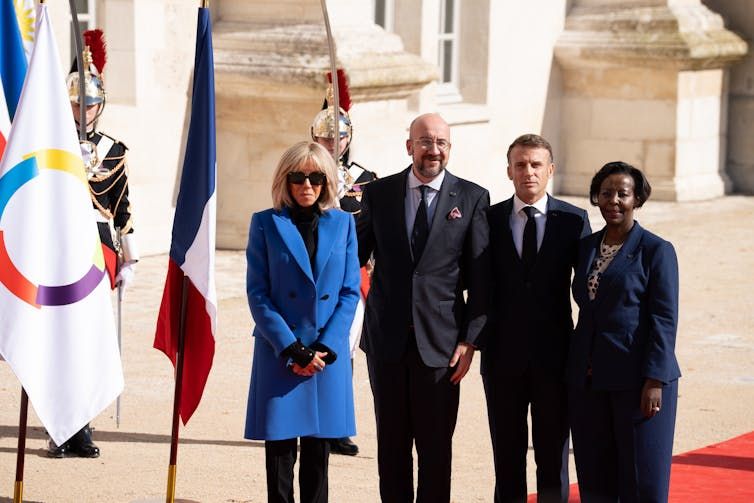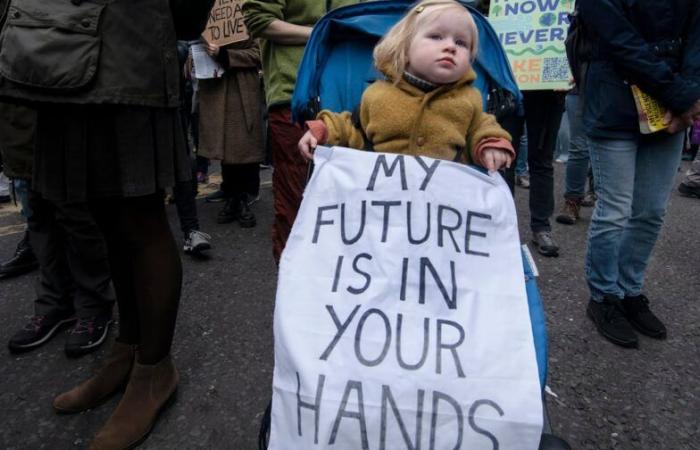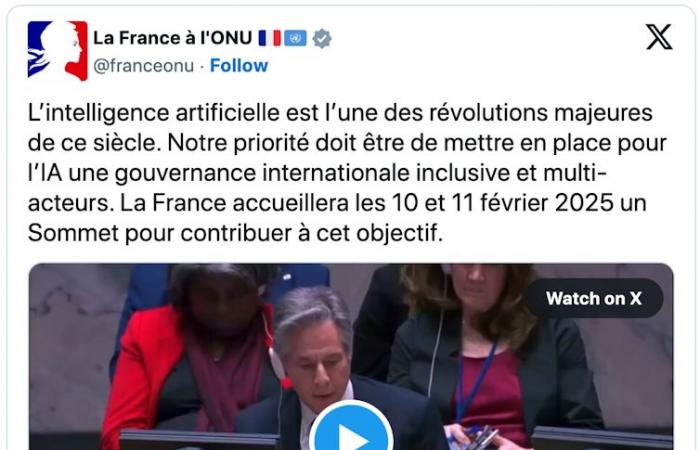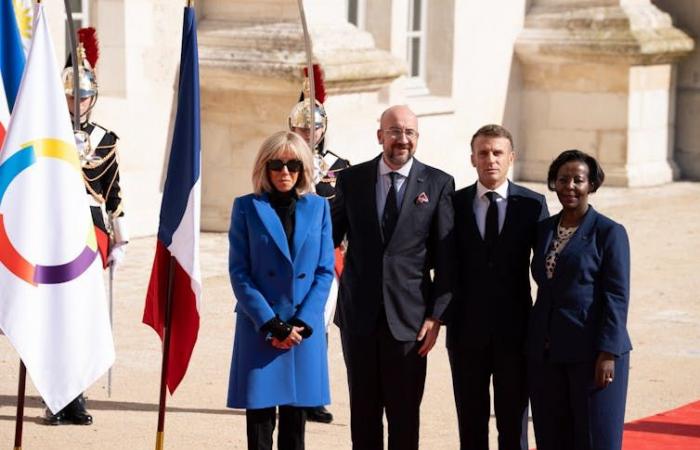Last September, following a summit aimed at reforming global governance, the United Nations adopted a “Pact for the Future”. This text aims to respond to current and future transformations, particularly those linked to global warming, and, according to the UN formula, to kick off a new multilateralism, more legitimate, just and effective. . France, despite its own progress in this area, has stayed away from the negotiations on the Pact and does not seem proactive in the application of the resulting measures.
The UN Future Summit, which was held from September 22 to 23, 2024 at the organization's headquarters in New York, hardly made the headlines in the French media. This exceptional meeting, however, resulted in the adoption of a Pact for the Future with two annexes: the Global Digital Compact and the Declaration on Future Generations.
France certainly participated in the negotiations on these texts and voted for their adoption, but without playing the leading role, far from it.
France on the sidelines of the event
As a researcher in sustainability sciences and futurist-prospectivist working with the Unesco-MOST BRIDGES Coalition (via the University of Cologne) and at the School of International Futures (SOIF), and affiliated as an associate researcher at CECILLE de the University of Lille, I took part in several related summit events, in Wales, Kenya, Cameroon and the United States.
With the exception of a meeting, on June 24, 2024, between several experts from French-speaking Permanent Missions to discuss with the United Nations Secretariat on “the progress of logistical preparations and negotiations of the Pact for the Future, of the Global Digital Compact and the Declaration on Future Generations”, France did not organize any public event relating to the topics of the summit, neither before the summit nor after.
For comparison, Cameroon, country of origin of diplomat Philémon Yang who is currently the 79e President of the United Nations General Assembly, organized a national consultation before the summit to refine its position in view of this important deadline.
Wales, the very first country in the world to adopt a parliamentary law in favor of future generations and to appoint an independent commissioner for future generations (after Israel's short experience in this area, with the Knesset Committee for future generations which existed between 2001 and 2006 before being definitively abolished in 2010 because it had too much power according to its detractors, organized the Wales Future Forum 2024 which resulted in the adoption of Wales Protocol for Future Generations.
For its part, Kenya hosted the UN Civil Society Conference in May 2024 to prepare for the Future Summit. The Kenyan Senate took the opportunity to launch its parliamentary group on the future.
After the adoption of the Pact for the Future, the 2024 Francophonie Summit, hosted by France in October, did not mention these themes. On the other hand, the G20, held in Brazil last November, did so, including a reference to future generations in its final declaration.
Read more: Erosion of French influence in Africa: what to remember from the Francophonie Summit in Villers-Cotterêts?
On this momentum, one wonders whether the Summit on artificial intelligence (AI), which France will organize in February 2025, will take into consideration the Pact, in particular its two annexes.
Implementation of the Pact for the Future
The Future Deal and the Future Generations Declaration call on Member States and all other stakeholders, at the local, national and international levels, to adopt long-term governance based on foresight and science, to meet the complex challenges facing our planet today, while guaranteeing the well-being of future generations.
Among other measures, the Declaration calls for “Providing the multilateral system, including the United Nations, with the necessary means to assist States upon request to implement this declaration and to integrate the needs and interests of generations futures and long-term thinking in policy-making by encouraging cooperation and facilitating greater use of advance planning and foresight, based on science, data and statistics, and having a role awareness and advice regarding “probable intergenerational or future impacts of policies and programs”.
Since the beginning of 2024, in addition to the few initiatives mentioned above and a Parliamentary Committee for the Future created in Finland, several projects are emerging to support the implementation of the Pact and the Declaration. These include the parliamentary groups for future generations in Kenya (launched in May and well advanced) and in Cameroon (still in gestation) where the Commission for Future Generations and Sustainability in the Kingdom was also created last October. of Mbessa.
The European Commission Commissioner responsible for intergenerational equity, youth, culture and sport also plays the role of commissioner for future generations.
Several other similar initiatives are currently underway in Spain, Australia and New Zealand.
A lack of action despite France's many assets
In such a context, France's insufficient action – or even inaction – in this matter is regrettable, given France's diplomatic weight in the world and, above all, because of the major role that Paris could play in terms of foresight. .
Several French NGOs work for future generations through the environmental cause, and some French universities offer specific training programs – for example, the training on future generations and legal transitions offered at Sciences Po Rennes.
Read more: Faced with the ecological emergency, how to transform the programs of schools and universities?
The Constitutional Court of France is also one of the very first legal bodies in the world, with that of Germany, to have ruled on the right of future generations to live “in a balanced environment that respects health”.
France is also renowned for initiatives in favor of children and youth. Several town halls, like Lille and Marseille, offer municipal councils run by young people. At the national level, France has a Youth Policy Orientation Council (COJ) which replaced the former National Youth Council (CNJ).
But curiously, during the Summit of the Future, the intervention of Jean-Noël Barrot, then Minister of Europe and Foreign Affairs, delivered to the United Nations General Assembly on September 23, 2024, mentioned Lebanese children victims of war but did not mention the future of future generations in the broad sense.
Like the United States, France has a long history and an important heritage in terms of strategic foresight, notably with figures such as Gaston Berger, Michel Godet, Thierry Gaudin, Jean-Eric Aubert, Michel Saloff Coste, Carine Dartiguepeyrou, Nathalie Popiolek or even Férial Benachour-Hait. Many prospective think tanks also exist such as Futuribles, Fondation 2100, the French Prospective Society, or the CNAM prospective programs.
It's time to act…
It is therefore crucial for France to seize the opportunity offered by the Pact for the Future in terms of anticipatory governance and promotion of the well-being of future generations. This agenda can fully take into account the fight against climate change and ecological transition, for which French leaders have shown in recent years their desire to make France a leader in this area – notably via the Paris Agreement.
Read more: COP29: billions for the climate, it's a lot but it's very little
On the international level, France could mobilize in this sense the International Organization of the Francophonie (OIF), including the Conference of Ministers of Youth and Sports of the Francophonie as well as the activities of the Innovation Foundation for democracy, notably the Assizes of Democracy led by Achille Mbembe.

Cristi Dangeorge/Shutterstock
It would also be important to support the adoption of strategic foresight practices in administrative and political bodies in the French-speaking world, particularly in Africa which is the continent with the youngest population in the world. Let us note in passing that Africa will also soon be home to the vast majority of future human and even non-human generations given the continent's biodiversity.
In France, since the anticipated legislative elections of 2024, the National Assembly is experiencing a decisive turning point where the formation of coalition governments is being tested. This situation is a great opportunity to create a mixed parliamentary group (and possibly a permanent committee) for future generations in France. There will also subsequently be a need for a French law in this sense.
The government of François Bayrou has just removed childhood from its former ministerial portfolio, provoking strong criticism from Unicef and certain children's defense associations. As a result, President Emmanuel Macron has promised that a High Commission for Children will be created in January 2025. Legally, a High Commission for Children can be easily dissolved by future governments because it will arise from 'a decree; but it could serve as a basis for the creation of a permanent commission for children and future generations, protected by parliamentary law.
Municipalities and regions can also take up and promote this agenda at a more local level, drawing on initiatives such as those in Lille and Marseille.
Read more: Proportionality, solution to the political crisis?
The implementation of the Pact for the Future must be able to join efforts for sustainability by pursuing the Sustainable Development Goals (SDGs) whose achievement is set for 2030, and go beyond.
In France, almost all the conditions are met to apply long-term governance for future generations: but it remains to be seen whether the political will will follow.








